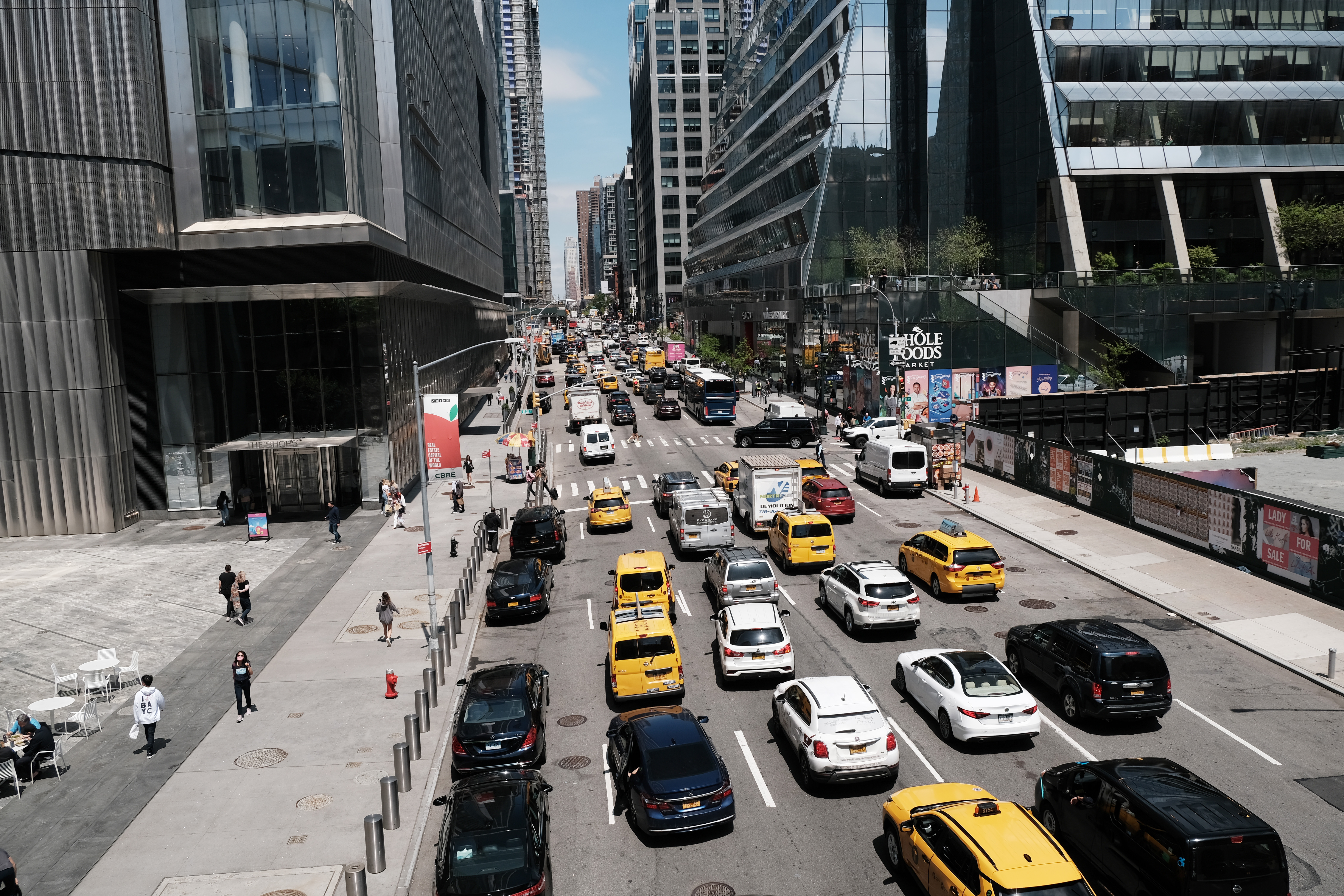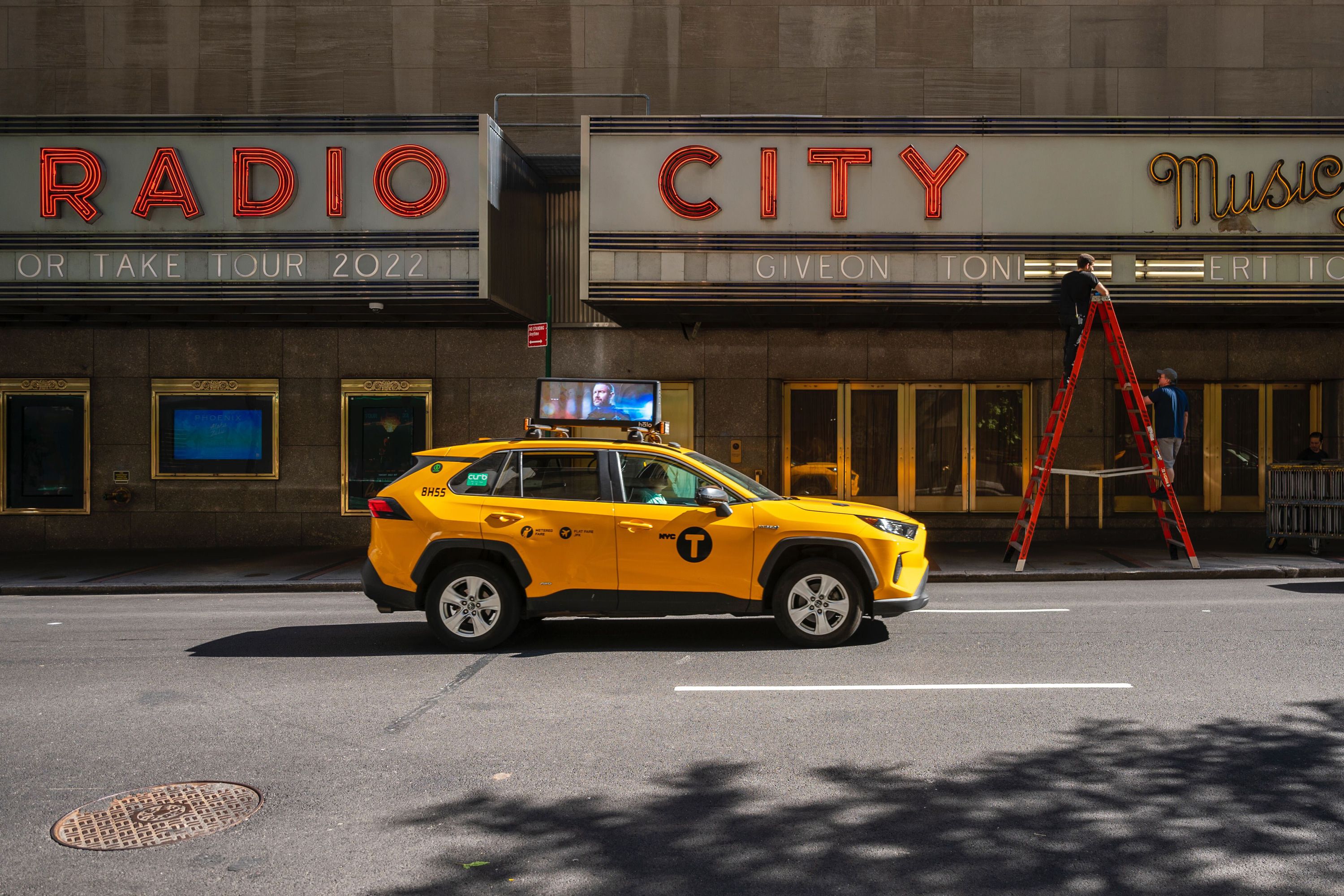The Metropolitan Transit Authority's proposed and controversial plan for congestion pricing in a large swath of Manhattan continues to move forward, even as one group very familiar with New York City's streets rallied against it outside of the governor's office.
Dozens of drivers gathered out in front of Gov. Kathy Hochul's midtown office on Wednesday, a rally held on the eve of when a series of public hearings on the plan are set to begin.
"Nobody knows exactly what’s gonna happen. And if they do that to us, the yellow taxi industry is over," said cab driver Nick Skafidas.
Get Tri-state area news and weather forecasts to your inbox. Sign up for NBC New York newsletters.
Those hearings will be six virtual sessions over the course of a week, and are designed to get public input on the main proposal which would add a toll to enter Manhattan south of 60th street. That toll could range from $9 to $23 at peak times, from $7 to $17 off-peak, and at least $5 even during overnight hours.
"We are outraged and disgusted by the money grab of MTA," said Bhairavi Desai, president of the Taxi Workers Alliance President, the union for cab drivers.
Dozens of the drivers tried to make their case that they already pay a congestion fee, and shouldn't have to pay a new toll to enter Manhattan starting in 2023. Other officials — mainly those from the outer boroughs or neighboring locations in New Jersey, Westchester County and Long Island — have complained that the toll would just lead to congestion elsewhere.
MTA Chairman Janno Lieber said that "there may be localized impacts," but that the study would mitigate those impacts.
The big question many, including the taxi drivers, are wondering: Who, if anyone, would be exempt? Although as one advocate explained, too many exemptions wouldn't be a good thing.
"The more exemptions there are the more everyone else pays," said Renae Reynolds of the Tri-State Transportation Campaign. "Overarchingly, congestion pricing not only reduces congestion but improves air quality."
Mass transit advocates and environmental groups say congestion pricing could generate $15 billion to modernize the subway system and improve the bus fleet.
Meanwhile, the MTA has chosen a panel of experts to recommend exact details, such as where exactly the license plate readers would go, and who would get to drive without paying. That panel did not say anything about their early thinking.
"Unfortunately, we are not doing any interviews prior to the conclusion of the public hearings and all requests for interviews should be coordinated through the MTA," one board member said.
In a statement, the transit agency said Wednesday that cars like taxis are part of the gridlock problem in the city.
"Anyone who has been in New York City in the past decade knows that for-hire-vehicles are a part of the story of congestion in Manhattan’s Central Business District, which has harmful air quality impacts and slows down the economy," said MTA Spokesperson Jon McCarthy. "Seven scenarios have been analyzed to reduce congestion, with a range of different approaches for taxis and for-hire vehicles. These scenarios are not being put forward by the MTA or anyone else at this stage as proposals, but public review and feedback is an important element of the Federal process.”
As for who will actually be at the virtual hearing on Thursday, it will be a hearing officer and representatives from the three project sponsors: the MTA, NYSDOT and NYCDOT. The Federal Highway Administration will also be in attendance. Public comments will begin shortly after an introduction, though moderators will not be shown on screen.
After the public hearings, the next step is approval from the Federal Highway Administration by the end of 2022. If and when that happens, the congestion pricing clock starts ticking as to how much to charge and when it begins



